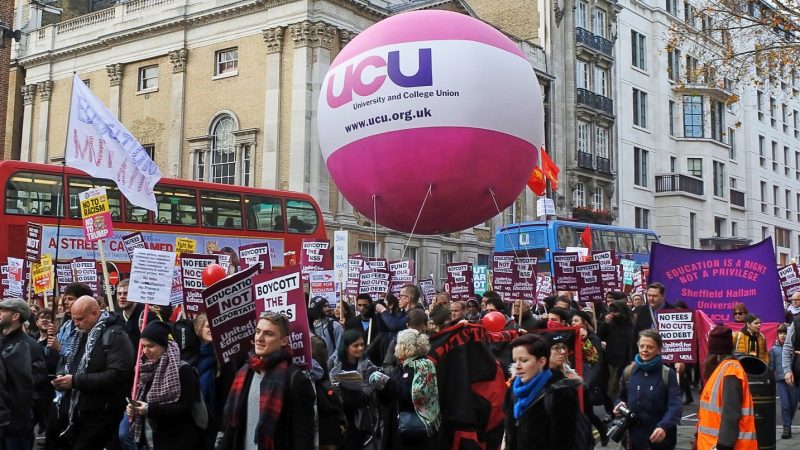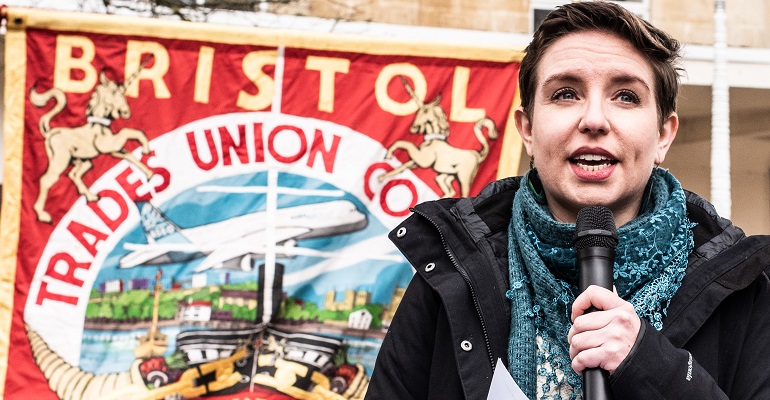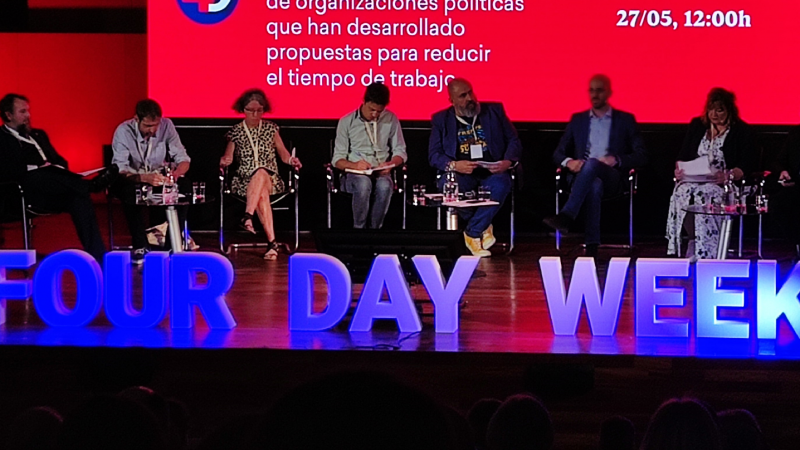TUC condemns ‘hateful rhetoric’ from Nigel Farage’s Reform Party, claiming the party has ’emboldened fascists’
t Left Foot Forward
A speaker in favour of the motion described Farage as 'Tommy Robinson in tweed'

Trade unionists are gathering in Brighton this week for the annual TUC Congress. Delegates debated and voted on motions related to a number of issues facing the trade union movement and workers.
On September 10, delegates voted for a motion titled ‘challenging the politics of hate’. That motion accused Nigel Farage’s Reform Party of engaging in ‘hateful rhetoric’ towards migrants and LGBT people, and claimed that the party had ’emboldened the far right and fascists’. It also criticised Reform’s policies on employment rights, highlighting the party’s manifesto which said “We must make it easier to hire and fire”.
Later, the motion called for the TUC and its affiliated unions to raise awareness of “Reform’s policies for the workplace and society and scrutinise and hold to account Reform’s elected representatives”, as well as to mobilise for demonstrations and campaigns against the far right.
Proposing the motion, Unison general secretary Christina McAnea said: “We, as a movement, have a responsibility to expose the lies and the myths promoted by Reform”.
NEU general secretary Daniel Kebede also spoke in favour of the motion, claiming that the far-right violence seen in Britain earlier this year was ‘fuelled’ by Tommy Robinson and Nigel Farage, who he branded ‘Tommy Robinson in tweed’.
Alongside this, delegates backed a motion titled: ‘Fighting the far-right narrative, hate crimes and hate speech to defend LGBT+ rights’.
That motion called on the TUC to – among other things – “robustly challenge all forms of anti-trans narratives and hate speech, government policies or guidance that promote anti-trans narratives”, and “defend all LGBT+ workers from the actions of far-right organisations that attack LGBT+ events including prides, drag storytimes and groups supporting trans inclusion”.
Chris Jarvis is head of strategy and development at Left Foot Forward










